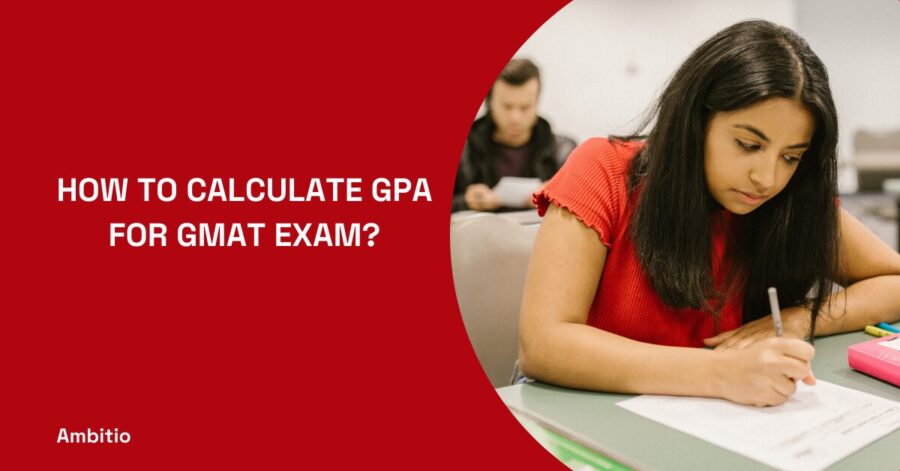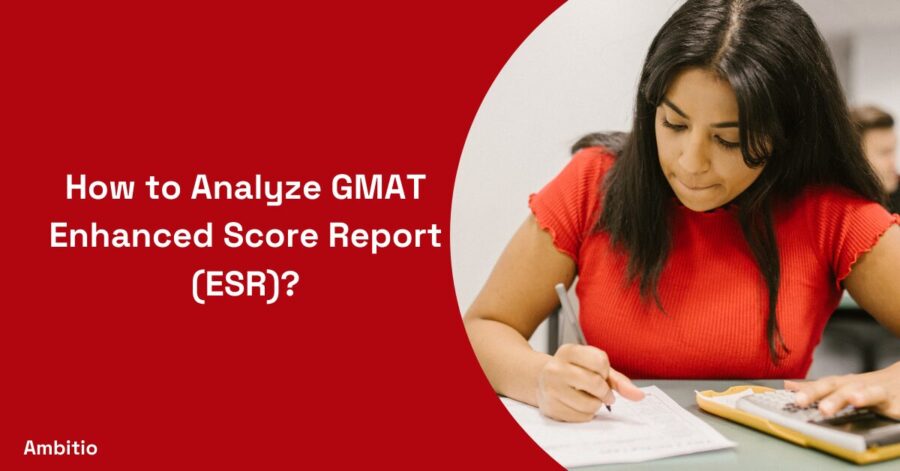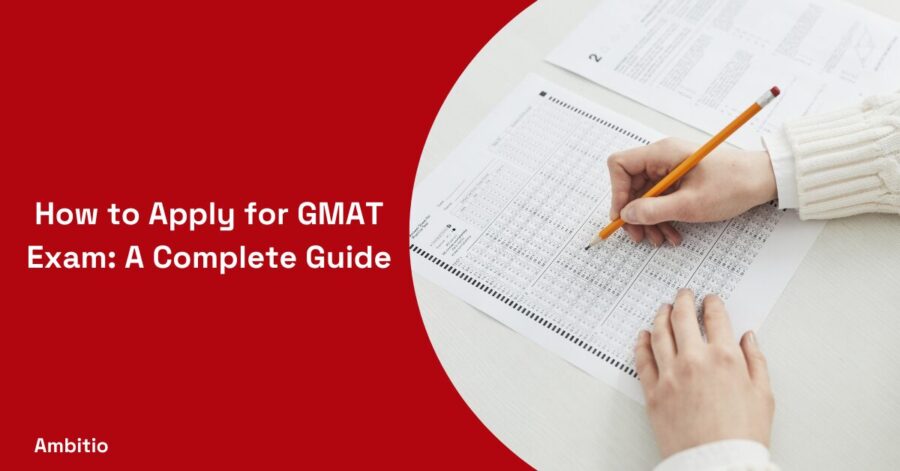11 December 2024
8 minutes read
GMAT Adaptive Test: Computer Adaptive Test Algorithm

Key Takeaways:
- Recognize that the GMAT adjusts the difficulty of questions based on your performance, making early questions crucial for setting the difficulty level of subsequent questions.
- Answering the initial set of questions correctly can help you encounter more 700-level questions, significantly impacting your final score.
- Avoid spending too much time on any single question. Make educated guesses if needed to ensure you have time to complete all sections.
- Use official GMAT prep materials and thoroughly review your practice tests to identify and improve on weak areas, ensuring a well-rounded preparation.
The GMAT, or the Graduate Management Admission Test, is an exam that is taken, for the most part, by prospective students intending on applying to business schools globally. It assesses a candidate’s analytical writing, mathematics, basic language and integrated reports skills deemed necessary for pursuing graduate management programs. In contrast to format that is typical to most of the existing examinations, the GMAT exam is especially for MBA candidates. There are a lot of benefits to GMAT exam and it is worth the hard work. Depending on their performance in the test, the degree of difficulty of the questions increases as the examination progresses.
How does GMAT work as a computer adaptive test?

For the GMAT to be a computer adaptive test, there are certain fundamentals that you need to understand whereby the test occurs on a computer and the level of difficulty of the questions that you face changes depending on how you are performing at that very moment. In the beginning when you start taking the GMAT, you are given a sample medium level GMAT question. Like in any test, the GMAT works like this; as you answer questions, the GMAT algorithm continuously adapts the level of the test to your score.
Key GMAT question, to predict your ability during the test, is solved by the computer. The computer estimates the probability of your actions. After each question, the difficulty level adjusts: how, when the contestant gives correct answers, the questions posed to him/her are made difficult, whereas if the contestant provides wrong answers to questions, the questions formulated become easy. The compilation of these specific sequences takes place during the whole of the test, so it gives a precise indication of your performance.
This means that even when you are answering several questions correctly, not all of them will contribute towards your score as the focusing is done on how well you have done on hard questions. The number of questions you answer and your ability to solve questions will be an estimate of your ability.
One half of the size of the test the algorithm begins the final tuning of the evaluation of your mastery while taking the test, further minimizing the variation of assessment to provide an accurate estimation of your capability of performance.
The GMAT is a common admission test and has a highly complex adaptive mechanism that adjusts test based on the ability of the taker; therefore, one needs to understand how GMAT operates in order to excel.
Principles of a computer adaptive test
The principles of a computer adaptive test (CAT) are essential to understand for effective GMAT prep and achieving GMAT success. Here’s a breakdown of these principles:
Initial Question Difficulty
The first 10-15 questions are of moderate difficulty – not too easy and not very difficult. These first questions form the basis of the test because the degree of their difficulty will determine the degree of difficulty of the following questions.
Adaptive Mechanism
While answering questions in the examination, it progresses with more challenging questions as the candidate continues to get the right responses. On the other hand, if you give wrong answers, then the programs will provide you with easier questions or questions of your level. This dynamic adjustment proceeds throughout the whole test.
Real-Time Adjustment
The test adapts in real-time based on your performance. Each question’s difficulty is determined by your responses to previous questions, allowing the test to continually estimate your ability.
Importance of Early Performance
The questions in the first half of the test are especially important. Answering these questions correctly helps to establish a higher difficulty level for subsequent questions, contributing significantly to your final score. For students wondering whether integrated reasoning matter in GMAT or whether it is ‘considered as or considered to be‘, it would be great to start with getting the basics right to ace the early performance.
Score Calculation
Your score is not solely based on the number of questions correct or questions incorrectly answered. Instead, it also considers the difficulty level of the questions you answered correctly. Successfully answering difficult questions has a more significant impact on your score. You should also have a clear idea about whether GMAT have negative marking or not as well.
Verbal Section and Quantitative Section
Both sections of the GMAT adapt independently. The verbal section, like the quantitative section, will adjust the difficulty of questions based on your previous answers.
Strategic Approach
Understanding these principles allows you to strategize during your GMAT prep. Focusing on accurately answering the initial set of questions can help set a higher baseline difficulty level, increasing the potential for a higher final score.
How does GMAT Computer Adaptive Test scoring work?

The GMAT is a test that uses a computer adaptive format to evaluate test takers’ skills. When taking the test, each test taker is presented with a unique set of questions that vary in difficulty. The difficulty level of the questions is adjusted in real-time based on the test taker’s response to previous questions. This means that the GMAT algorithm plays a crucial role in determining the next question’s difficulty level.
On test day, as you begin answering questions on the GMAT, the standardized test will start with questions of medium difficulty. If you answer correctly, the subsequent questions become more challenging; if you answer incorrectly, the following questions become easier. This dynamic adjustment continues throughout the exam, ensuring that the set of questions you encounter is tailored to your performance level.
Your final score is not simply based on the number of correct answers but also on the difficulty level of the questions that you’re able to answer correctly. Therefore, thorough test prep is essential to perform well. The GMAT test is designed to provide an accurate measure of your abilities, making it a crucial component of your business school application.
3 Things you need to avoid while taking the GMAT adaptive test
When taking the GMAT adaptive test, it’s crucial to avoid certain pitfalls to maximize your performance and align with the GMAT scoring algorithm. Here are three things to avoid:
Panic over Hard Questions
During the test taking process, encountering a harder question can be intimidating. However, it’s important not to panic. The GMAT scoring algorithm presents harder questions because you’re performing well. Instead of worrying, focus on applying your skills and strategies developed during your GMAT practice tests.
Spending Too Much Time on One Question
While it’s tempting to spend extra time on hard questions, this can be detrimental. If you spend too long on a single question, you risk running out of time for the next set of questions right. Time management is critical; ensure you allocate your time wisely across all questions to maintain a steady pace throughout the actual GMAT.
Neglecting to Review
After completing your GMAT practice tests, it’s essential to review GMAT thoroughly. Understanding your mistakes and learning from them is key to improving. Additionally, reviewing your GMAT enhanced score can provide insights into areas needing improvement. By neglecting to review, you miss the opportunity to refine your approach and enhance your performance on the actual test.
Tips to Ace Your GMAT Adaptive Test
Preparing for the GMAT can be daunting, but understanding the intricacies of computer-adaptive tests and employing the right strategies can help you excel. Here are some tips to ace your GMAT adaptive test:
Understand the Test Format
Get familiar with some of the test features The GMAT has questions of a medium level of difficulty in its beginning. Based on these questions, the following questions are developed and the difficulty level of your answers will dictate what you will be faced with next. It then becomes apparent that while correct answers earn the candidate more difficult subsequent questions, incorrect answers earn easy follow up questions. It’s important that you learn more about this mechanism as it will help you to set realistic goal and /or pace when undergoing the test. Hence, the first questions should be a major focal area since they provide a reference point regarding the level of difficulty expected in the succeeding questions. The remaining questions are automatically administered to you based on these early responses then your performance GMAT scoring algorithm. You can also seek the help of a reliable complete GMAT strategy guide set for this purpose.
Focus on Early Questions
The initial questions are important as they help to determine further level of increasing the difficulties of the questions you are going to face next. These early parts are then used to give the candidate next proper questions that suit them with an aim of reducing the accuracy and precision of the final score. Make sure that you answer the following questions in order to increase your probability of getting more questions at the 700 level in the future. Do not worry about being late to the racebecause if you have the right mindset, there can be a best way to prepare for GMAT in 2 months as well.
Time Management
Efficient time management is essential for both the verbal and quantitative sections. Avoid spending too much time on any single question. If you encounter a particularly challenging problem, make an educated guess and move on. This strategy ensures that you have enough time to answer all questions administered during the test. It also helps you master GMAT time.
Practice with Official Materials
Use official GMAT prep materials and practice tests to get accustomed to the designed questions you will face on the actual test. These resources provide a realistic representation of the question types and difficulty levels you will encounter. There are materials available on difficult topics like GMAT function practice questions which you can make use of.
Review Your Practice Tests
After taking practice tests, review the questions they answered correctly and incorrectly. Understanding why you got certain questions wrong helps identify areas for improvement. This review process is crucial for refining your approach to the test and enhancing your overall performance. It will help you in cracking the GMAT with ease.
Develop Test-Taking Strategies
Create strategies for different types of questions you may encounter. For instance, if you find yourself stuck on 700-level questions, have a plan to make an educated guess and move on. Developing such strategies during your GMAT prep ensures you remain composed and effective on test day. You can seek the help of online courses like e-GMAT for cracking the exam as well. For inspiration, you can even take a look at the e-GMAT success stories.
Simulate Test Conditions
Practice under conditions similar to the actual GMAT. This includes timing yourself strictly, working in a quiet environment, and adhering to the test structure. Simulating test conditions helps build stamina and reduces anxiety on test day. You can start with a GMAT beginners guide to help you get started.
Stay Calm and Focused
Maintaining a calm and focused mindset during the test is vital. The computer-adaptive nature of the GMAT can be intimidating, but staying composed allows you to think clearly and perform at your best. Remember, each question is an opportunity to demonstrate your skills. Make sure to download your GMAT admit card and keep it with you beforehand.
Conclusion
The GMAT Computer Adaptive Test (CAT) can be considered one of the significant prerequisites when applying to business schools – it is an examination specially developed to measure the ability required in graduate management programs. Although there are courses like Executive MBA which doesn’t need GMAT, taking the adaptive test increases your range of options. Learning how GMAT functions as a computer adaptive test, letting yourself get familiar with the concepts underlying the test, and knowing what not to do on test day are all the factors of good preparation in order to achieve a high score.
Transform your GMAT preparation with Ambitio’s expert guidance. Our comprehensive approach includes personalized study plans, adaptive practice tests, and strategic insights, all designed to enhance your understanding and performance across the exam’s quantitative and verbal sections.
FAQs
How important is the Analytical Writing Assessment (AWA) in the GMAT?
The AWA section is important as it evaluates your critical thinking and communication skills. While it doesn’t directly affect your total GMAT score, it is still considered by admissions committees.
What is the Integrated Reasoning section, and why is it important?
The Integrated Reasoning section tests your ability to evaluate data presented in multiple formats. It is crucial for business school as it mirrors real-world data analysis tasks.
Can I skip questions and return to them later on the GMAT?
No, the GMAT does not allow you to skip questions and return to them later. Each question must be answered in the order it is presented.
How frequently should I take practice tests during my preparation?
Taking practice tests once every 1-2 weeks is beneficial to track your progress and adjust your study plan accordingly. Make sure to review and learn from each test.
What role do unofficial GMAT prep materials play in preparation?
Unofficial materials can be useful for additional practice but should complement, not replace, official GMAT prep materials to ensure you are studying questions that closely resemble the actual test.
Is it beneficial to take the GMAT more than once?
Yes, many test-takers improve their scores on a second or third attempt. Use your initial test as a learning experience to identify weaknesses and improve your strategy.

You can study at top universities worldwide!
Get expert tips and tricks to get into top universities with a free expert session.
Book Your Free 30-Minute Session Now! Book a call now




























